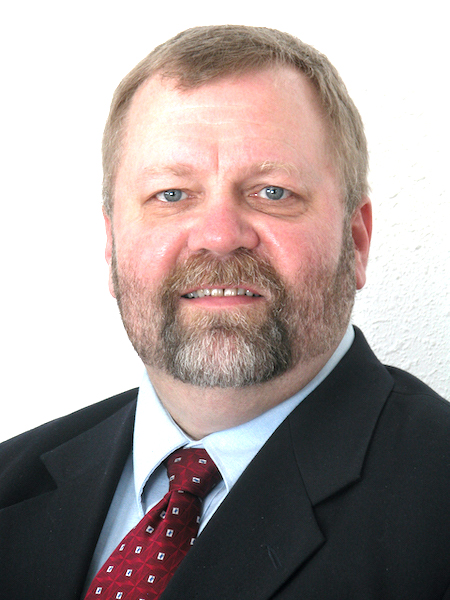Including ... Travel Considerations for Armed Citizens • President’s Message • Attorney Question • Book Review • Editor's Notebook • About this Journal
Get eJournal PDF: click here
Travel Considerations for Armed Citizens
by Art Joslin, J.D., Director of Legal Services
In the month of May, as we head into nicer weather (hopefully), folks will begin to travel. More specifically, May will bring thousands of patriotic Americans to Houston, Texas for the 2022 annual membership meeting of the National Rifle Association. This is a great time to remind all of us about reciprocity and traveling with your firearms.
In the early 1960s, a few states entered the driver license compact. This compact between states gave driver license reciprocity to those states that entered it. This gave drivers the ability to travel in states in the compact and have driver license reciprocity between their home state and state into which they traveled. Eventually all states had driver license reciprocity.
Our civil rights don’t stop at the state line. The first ten amendments to the Bill of Rights are considered our civil rights. My right to free speech, fifth and fourteenth amendments, right to a jury trial, and right to counsel, aren’t left at the state line. They are rights endowed by our Creator and not by any government. If this is so, then why isn’t our Second Amendment also listed among those civil rights which we can take with us? Consider this: if I possess these rights, shouldn’t I be the one to decide where I take them? Yeah, I know…we could write volumes about the issue. Let’s leave this question to the Attorney-of-the-Month Q & A.
Let me continue with my analogy to driver license reciprocity. Granted, when driving state to state, some states have different motor vehicles codes, although most jurisdictions have adopted the Uniform Vehicle Code. By comparison, a cursory study of firearm travel laws across the United States can send a person’s head spinning.
President’s Message

by Marty Hayes, J.D.
We have two things to discuss this month. The first is the upcoming Lewis County Superior Court hearing where we get to argue our case against the Washington Office of Insurance Commissioner in front of a real judge (not an employee of the Insurance Commissioner). The hearing is scheduled for May 13 at 1:30 p.m., in Judge Lawler’s courtroom, if anyone wants to come and support us. Personally, I would love to see a contingent of Network members present, but not at the expense of people taking a day off work or making any other great sacrifice. The hearing will be in person, but those would like to observe have the option to watch the hearing live on YouTube.
Attorney Question of the Month

Half of the states have laws allowing permitless concealed carry of firearms. Before members happily let their state-issued carry permit expire, some are asking if we know of unexpected pitfalls in permitless carry. This is a great topic for discussion in our online member journal, so we reached out to our affiliated attorneys, asking their thoughts on the question. While encouraging them to go beyond our questions, we tried to start the discussion by posing the following questions:
In general, what is your opinion of permitless carry laws?
Book Review
What Every BODY is Saying
An Ex-FBI Agent’s Guide to Speed-Reading People
William Morrow Paperbacks 2008
ISBN 978-0061438295
250 pages, illustrated, softbound 6x9, $9.99
Reviewed by Gila Hayes
Joe Navarro, retired FBI nonverbal communication expert marvels that of all the social behaviors we are taught, “we’re never instructed on how to observe the nonverbal clues of others.” What Every BODY is Saying sets out to teach readers to recognize those many indicators and make accurate assessments. Navarro observes that for those who can decode nonverbal signals, that subtle knowledge reduces conflict through insights into the other’s thoughts, feelings and intentions. Using unspoken communication requires deliberate effort, he writes, and draws on “all your senses, not just your sense of sight.”
Editor’s Notebook
by Gila Hayes
I’ve long been interested in how hard it is to objectively listen to different beliefs held by others. It’s even more challenging when people within our own circle hold opinions and beliefs opposite our own.
A few years ago Pacific Standard Magazine reported on a study into why people show so little interest in the reasoning behind opinions that differ from their own. “The researchers found participants avoided hearing out the other side for two basic reasons. They feared doing so ‘would create cognitive dissonance’ — the psychological discomfort that arises from simultaneously holding two opposing beliefs. And they felt it would...disrupt the comforting delusion that we hold similar values.”
About this Journal

The eJournal of the Armed Citizens’ Legal Defense Network, Inc. is published monthly on the Network’s website at http://armedcitizensnetwork.org/our-journal. Content is copyrighted by the Armed Citizens’ Legal Defense Network, Inc.
Do not mistake information presented in this online publication for legal advice; it is not. The Network strives to assure that information published in this journal is both accurate and useful. Reader, it is your responsibility to consult your own attorney to receive professional assurance that this information and your interpretation or understanding of it is accurate, complete and appropriate with respect to your particular situation.

